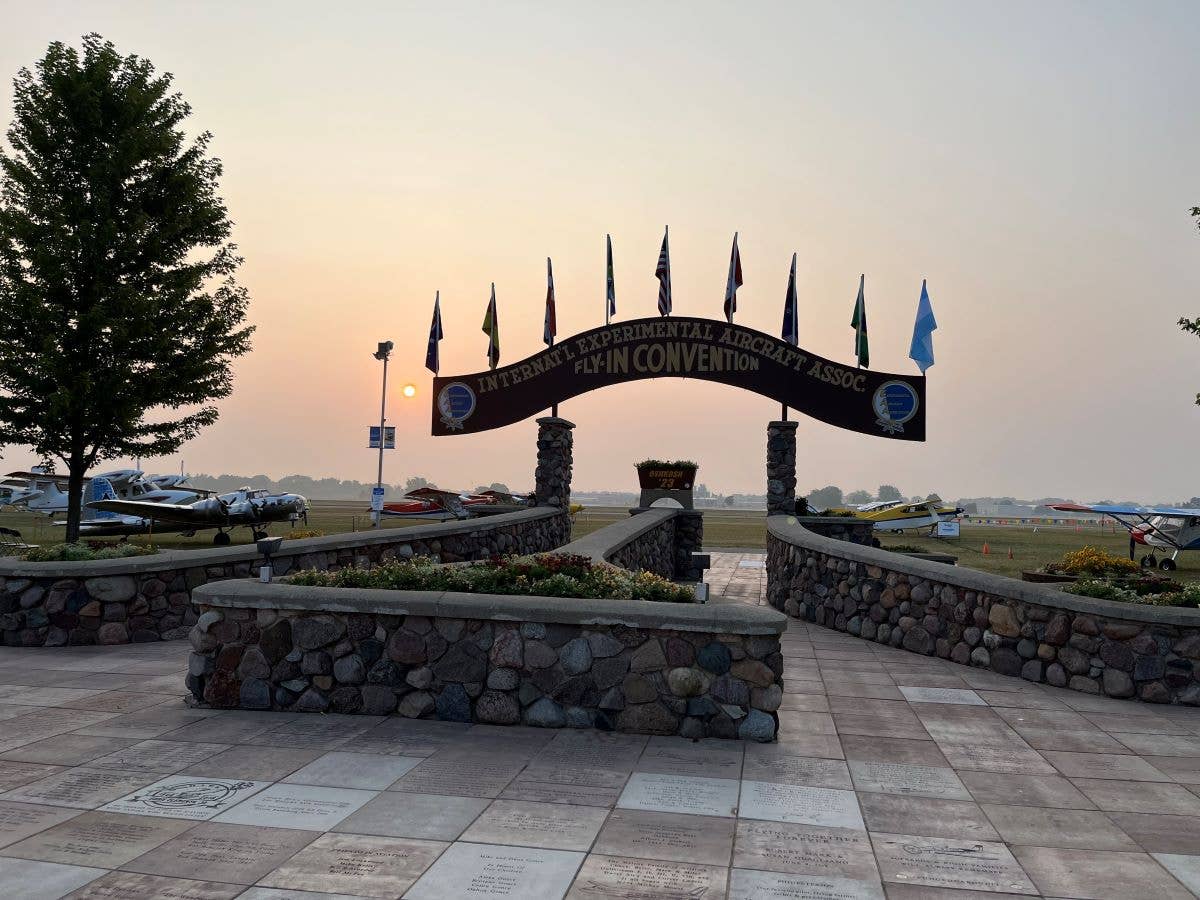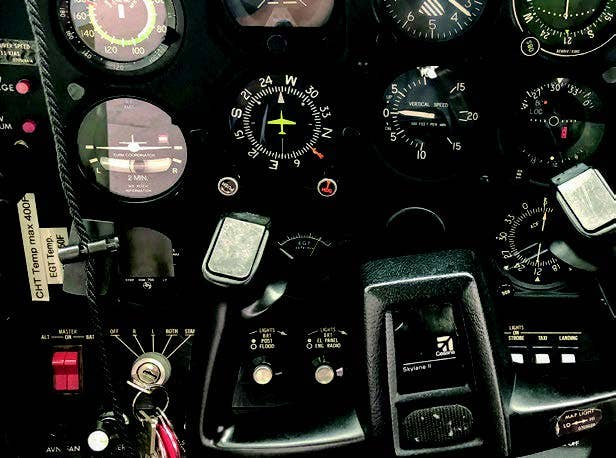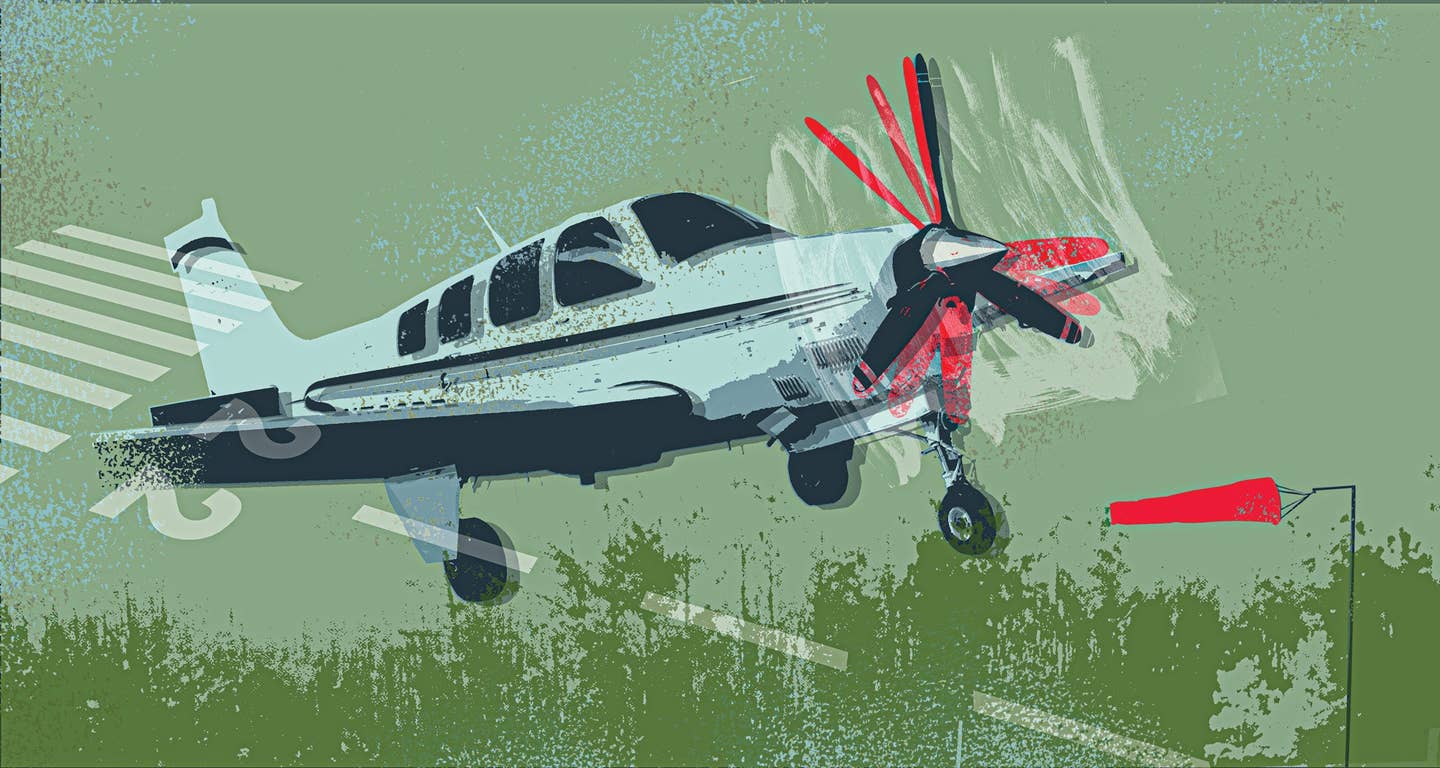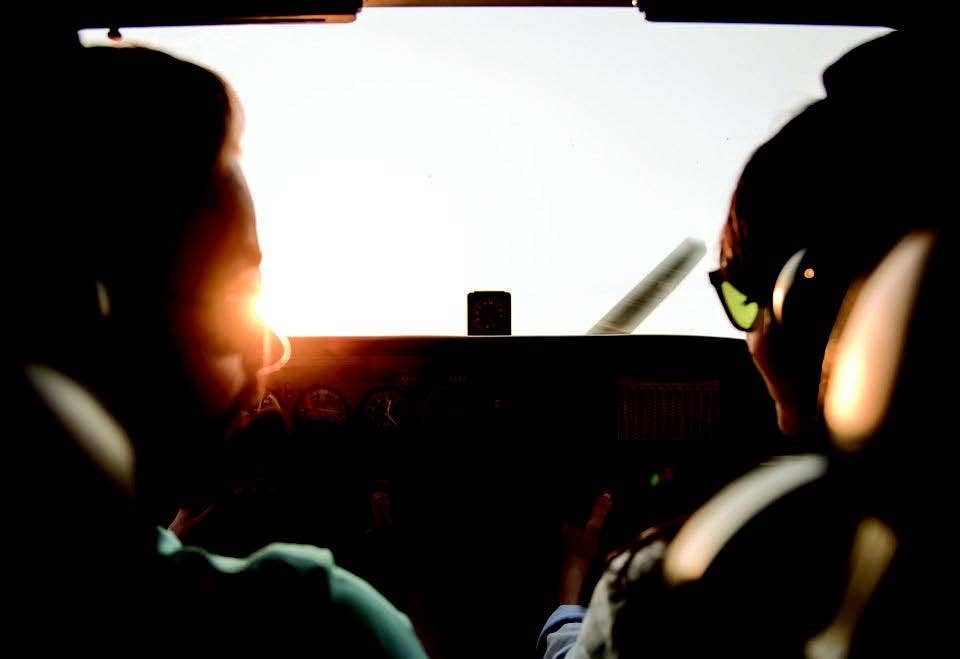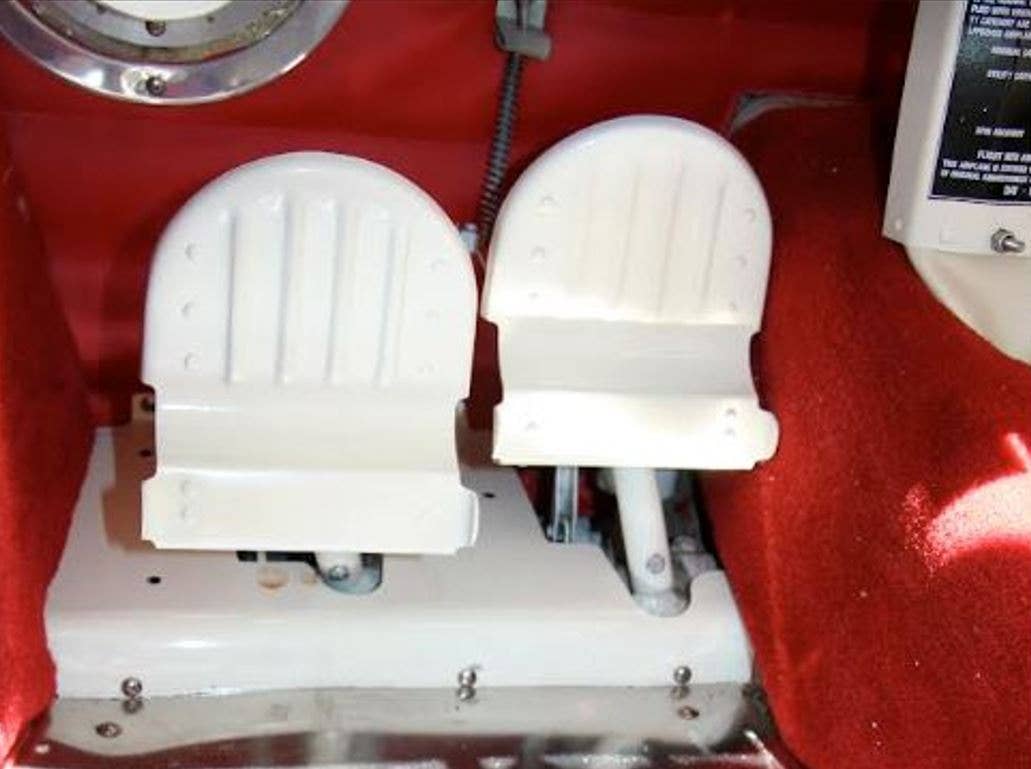Beloved Flight Instructor’s Lessons Continue to Replay in Airline Captain’s Head
CFI Mario Feola taught a pilot how to push himself to excellence, even if that push felt like a kick in the butt.
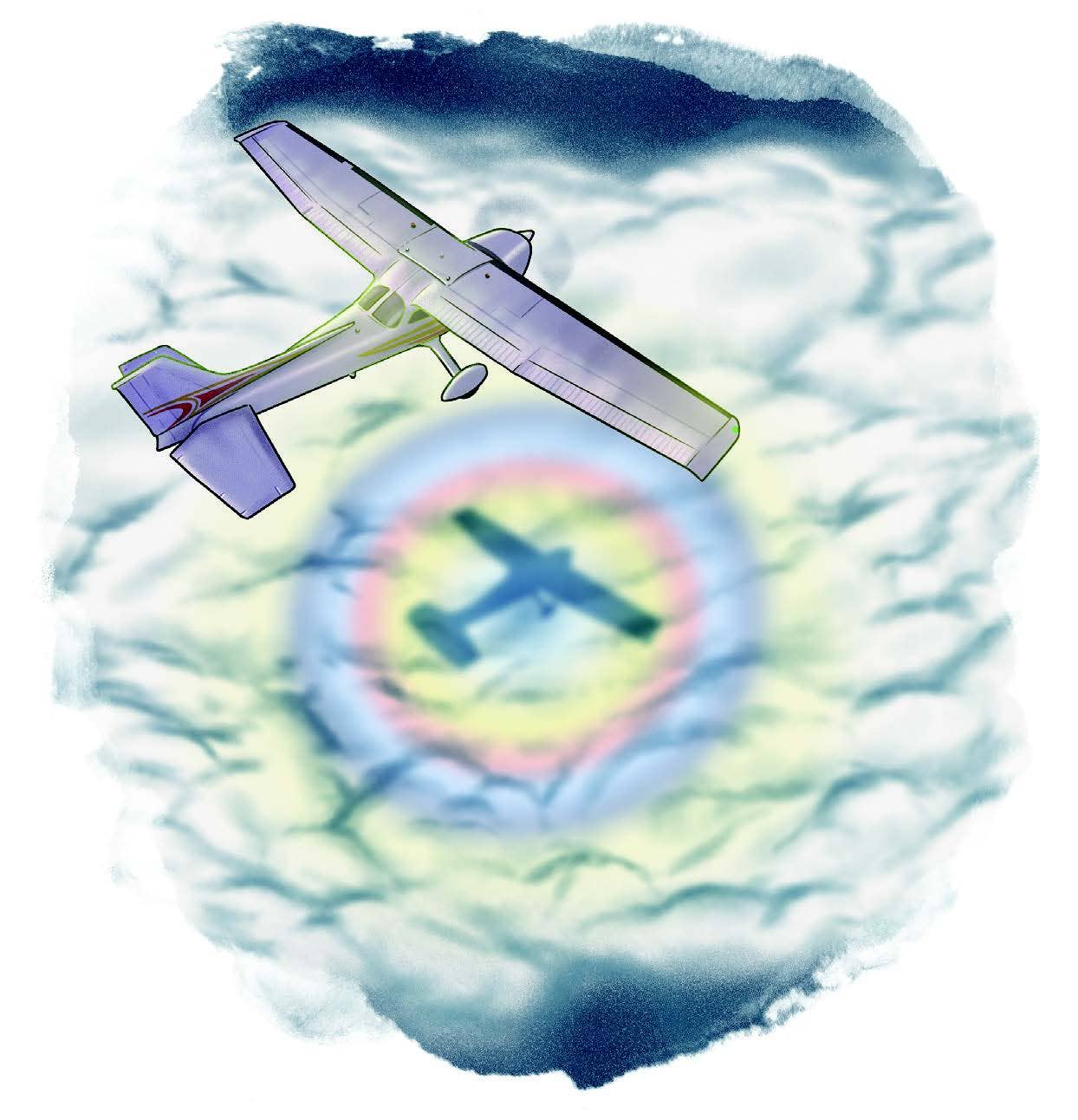
Down below us, on a bubbly set of
cotton-white clouds, was a perfectly round rainbow, and in its center, the shadow of our airplane. “It’s a pilot’s cross,” Mario Feola said. [Illustration: Joel Kimmel]
“So, do you ever get to use any of those little things I taught you in the big leagues?”
My first flight instructor, Mario Feola, always loves to ask me questions like that one. He is perpetually curious about how my job is going and how it relates to the tips he passed on to me. He likes to see the ripple effect his teaching had on the making of a learner pilot, especially one like myself, now a new captain on a 45-ton airliner. Instructors are like that, especially wise, gray-haired ones. Mario has as much experience, and gray hair for that matter, as any airman I ever met. He has a big belly, a white beard, and a dominating presence in any room. He’s pretty much a jolly Italian Santa, only happier and more generous if that’s possible. This Santa, however, doesn’t have any reindeer—just a small, single-engine Cessna.
If you're not already a subscriber, what are you waiting for? Subscribe today to get the issue as soon as it is released in either Print or Digital formats.
Subscribe Now“So, what do you use?”
“Well, to tell you the truth, all of those hours crammed in that sardine can-sized plane with you, sweating in the Mississippi heat, cruising at what seems like dangerously low altitudes, really did have a profound effect. I learned a lot.”
Like the time I was in freezing conditions and started picking up heavy ice outside Minneapolis-Saint Paul International Airport (KMSP). It was the kind of cold that makes penguins shiver and Minnesotans fly south for the winter—which was exactly what we were doing. The thick, clear ice started piling up on any surface exposed to the elements. No big deal: “Turn on the wing anti-ice protection.” Without hesitation, my first officer reached up and moved a switch that propels lava-hot air, taken directly from the interior of our own jet engines, and shoots it down a shielded enclosure within the edge of the wings. The resulting spike in temperature melts even the worst that this frozen tundra can throw at us.
Then it happened…a triple chime.
A triple chime is the highest-priority audible alarm in the aircraft. It is usually followed by a dozen nasty messages from the flight computer and an equal number of vulgarities from the flight crew. This one was no exception—bleed leak. The boiling, hot air from the turbines had escaped and was pouring into the unprotected components inside the wing. In a few moments, the compressed air would begin to destroy flight controls or even melt and deform the wing, leading to an uncontrolled roll motion. But to stop the heat now also meant that the ice would continue to compound aggressively on a cold wing, adding weight and disrupting the flow of air, which leads to an aerodynamic stall and a really bad day for my airline’s insurance provider.
“Remain calm, slow down, think.” Mario’s words passed through my mind. I first heard them a decade before. He was trying to get me to finally understand cross-country flying. Back then, long distance was from Diamondhead, Mississippi, to Slidell, Louisiana, not quite LAX to JFK just yet. “Remain calm, slow down, think.” Sage words reminding a learner that a lot of wrong decisions made in haste can turn a simple problem into the headline on the 9 o’clock news. OK, deep breath…think. I just heard another airplane report that the turbulence dissipated when it exited the clouds far below us. That means this layer must end with the base of the clouds.
“Perform the checklist for the bleed leak. We are going to declare an emergency, descend out the bottom of this weather layer and into the clear below,” I thought to myself. “Any ice we pick up will be minimal, and we will carry extra speed into the landing to compensate for any lift lost or weight gained.” Twenty minutes later, I was calmly telling the passengers, “Thank you. Please fly with us again.”
That wasn’t the only time a lesson came hurtling back into my consciousness uninvited. Like the time we were learning how to climb and descend at set speeds. It was a basic and rudimentary task that every pilot must get through. It was during that lesson that I observed our course would drive us into a spring shower, the kind that gently sprinkle rain, barely enough to get the ground wet, just enough to make you curse if you just finished washing your car. I asked Mario to go around it, but he refused: “It’s just water. Remember, it’s only water.” We passed through the shoot of drizzle without so much as a bump. The rain splattered the windscreen and slid right off. My fear was unfounded.
Once on the other side, Mario was quick to point out an unusual anomaly. Down below us, on a bubbly set of cotton-white clouds, was a perfectly round rainbow, cotton-white clouds, was a perfectly round rainbow, and in its center, the shadow of our airplane. “It’s a pilot’s cross,” he said. “It only happens when the sun is behind you, water is still hanging in the air, and those puffy marshmallows are down there. Our shadow makes the shape of a cross, and it’s only ever seen from above, solid proof that God loves pilots.”
A dozen years later, I was passing over the Great Plains. This time, however, I was five times faster and 10 times higher but still just as uneasy when the first few raindrops hit my windscreen. After all, the place 30,000 feet beneath me is nicknamed “Tornado Alley.”
“Ladies and gentlemen, this is your captain speaking. You may notice some flashes of lightning originating from the thunderstorm cell to the left side of the aircraft. I just wanted to reassure you that I’ve adjusted our flight path to take us well clear of the storm. However, I do ask that you remain seated and firmly buckled up, as I expect to encounter some residual pockets of isolated rain and turbulence. Please do not be alarmed if we fly through any rain. Remember, it’s only water.”
As I ended the PA, I could see the apprehension of my new-hire copilot beginning to crack through her calm demeanor. “You’re not nervous?” she squeaked out. “Nah, we will be fine,” I said. “God loves pilots.”
At no point did Mario’s words ring truer than during an August flight to Montreal. We had just taken off and made our first turn out of Minneapolis. Passing through 3,000 feet, barely two minutes into our journey, a deafening boom rattled the whole airframe. Dials and needles on the faces of the engine instruments spun wildly out of control, the airplane lurched to one side, and a flame the length of a small car spewed out of the tailpipe of our left engine. I had seen this scenario a dozen times before from the relative calm and safety of our company simulator, but now the stakes were raised with real people behind me and real granite below. Instinctively, I grabbed the controls and reverted back to my Cessna days: “You fly the airplane. Don’t let it fly you.”
“I have the controls. Give me the quick reference checklist for engine one fail, severe damage, no relight, N1 at 0.0 percent, engine temp past limits, standby for possible fire indication.”
That bark to my copilot was unmistakable. I am the captain. The ship returned to earth just a few seemingly hour-long minutes later with procedures done, flight attendants needlessly ready to spring into action, miles of runway cleared, a massive commercial airport at a standstill, and a dozen fire trucks waiting patiently. I landed without incident, taxied to the gate and then personally apologized to each passenger for the interruption of their travel plans. Every single one of them boarded our spare airplane to take them along the same stretch of sky just 40 minutes later. That told me that they trusted me—and would do so again.
Mario, there are some lessons from you that are far more important, though—the ones I live every day. The things I took to heart most were the things you didn’t do or say—like the fact that you never gave me a bill. Thousands of dollars and hundreds of hours of your time, just volunteered, for nothing in return. You taught me that the best things in life are freely given to those that can never give it back to you. I’ve heard it elsewhere called grace. You taught me the value of patience, especially during the times it seemed like I was learning to crawl, not fly. I’ve never seen you get angry, and I’m not sure it’s possible for you. You taught me about having faith in the people you care about, and you never doubted me, even when I failed—and I failed a lot. You taught me to push myself to excellence, even if that push felt like a kick in the butt.
You once told me that you envied me. I guess it’s because I’m living out your dream occupation. But that’s just not the reality. I envy you. It is true that I’m a captain now, but you didn’t just make me into a pilot. You molded me into a better man, a man more like yourself, and that’s what I really wanted the most. That’s what I learned from you, Mario. I learned about flying, and life, from that.
This column first appeared in the December 2023/Issue 944 of FLYING’s print edition.

Subscribe to Our Newsletter
Get the latest FLYING stories delivered directly to your inbox


